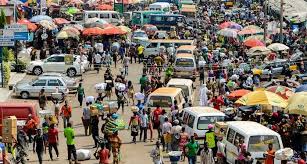Ghana’s economy is showing strong signs of recovery, with growth picking up speed in the first quarter of 2025. According to figures released on Wednesday by the Ghana Statistical Service (GSS), the country’s Gross Domestic Product (GDP) grew by 5.3% year-on-year from January to March.
This is an improvement from the 4.9% growth rate recorded during the same period in 2024, and it highlights the return of economic momentum after Ghana’s worst financial crisis in decades.
Government Statistician Dr. Alhassan Iddrisu said the growth was mainly supported by improvements in the services sector and a notable recovery in agriculture, a key area of the Ghanaian economy.
“This momentum reflects more than just numbers. It signals recovery and the confidence of an economy finding its rhythm in a very complex global environment,” Dr. Iddrisu told journalists at a press briefing in Accra.
The services sector, which includes information and communication, trade, and financial services, continues to lead growth, while the agriculture sector rebounded strongly—boosted by higher cocoa output and better weather conditions compared to last year.
Ghana, the world’s second-largest cocoa producer, has been battling severe economic challenges in recent years, including high inflation, currency depreciation, and public debt distress. These issues pushed the country to seek a $3 billion loan deal from the International Monetary Fund (IMF) in 2023, which came with strict fiscal discipline conditions.
Finance Minister Cassiel Ato Forson, speaking earlier in March, expressed optimism that tighter spending controls and ongoing reforms will help Ghana stay on track. He said the country is aiming for at least 4% real GDP growth by the end of 2025.
Ghana’s full-year growth for 2024 was 5.7%, showing that the country is gradually rebuilding investor confidence and laying the groundwork for long-term stability.
Analysts say the Q1 performance could give Ghana more bargaining power in its ongoing debt restructuring efforts, and also reassure development partners and investors about the country’s fiscal direction.
However, challenges remain. Inflation, while falling, remains high. The Ghanaian cedi is still under pressure from external factors, including global interest rates and demand for dollars. At the same time, energy costs and unemployment continue to affect household spending and business confidence.
Still, the latest data offers a glimmer of hope, showing that with the right policies and support, Ghana can steer its economy back on track.
As attention turns to the second quarter and beyond, economists are closely watching how the government balances growth, inflation control, and debt repayment under the IMF programme.
